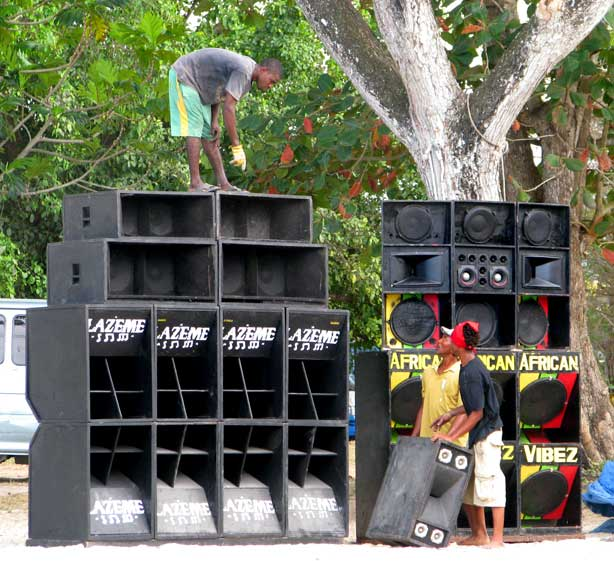Dub in 70s Jamaica
This was a movement that re-defined what constitutes an instrument, and what the role of the producer is.
Dub, which can be considered both a genre and a type of processing technique, means to take a track (commonly a reggae or ska track), split its different elements into several mixing channels and then proceed to process it by mixing different elements in and out and sending these separately into effect units often consisting of large reverberations and quick delays.10
What was groundbreaking at the time was every single dub track basically being a live recording of a mixing desk and a four track recorder both being used as an instrument. Because of technical constraints the dub producer would simply have to hit record and then perform their entire vision in one take, with the mixing desk going into the recorder. They used techniques such as quickly turning up a send track to feed a single drum or guitar hit into a delay unit before quickly turning it down again, resulting in the iconic sound of the dub delay.
These mixes, called ”versions”, would often extend the original track dramatically and often excluded most or all of the vocal passages. A producer would, and more importantly could because of the one-take limitation, record and send out several versions to sound system party arrangers, allowing them to keep their sets fresh.
What made this movement a turning point was that it was the first popular genre in which the misuse was not directed towards an instrument or its means of amplification, but rather towards the tools of music production. Until then, these tools had been meant to facilitate an artists performance rather than to transmit a performance of their own, and had focused on realistically conveying that performance. That which was meant to be inaudible had now instead been turned into the fundamental instrument of the genre.
To realize the impact of this we must understand it as the birth of what would eventually be known as the remix. This could be viewed as the entry of post-modernity into popular music, as the entire history of recorded music gradually ended up being up for grabs to be edited, re-interpreted and re-contextualized. The misuse of technology ended up not only changing the practical means of music creation but also the philosophical backbone as well as the practical arrangements and structure of roles of the entire music industry.
